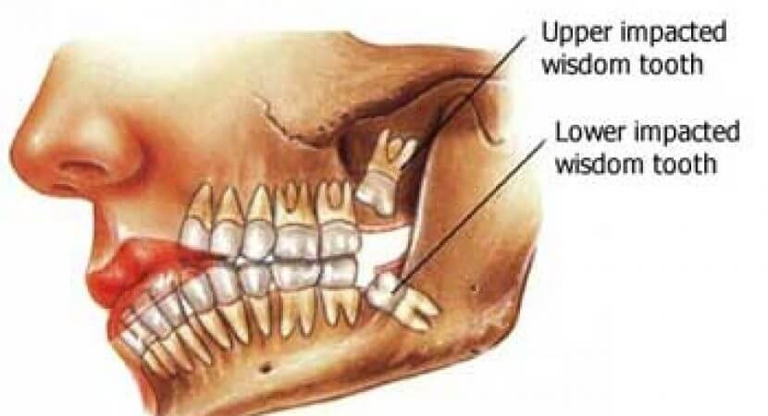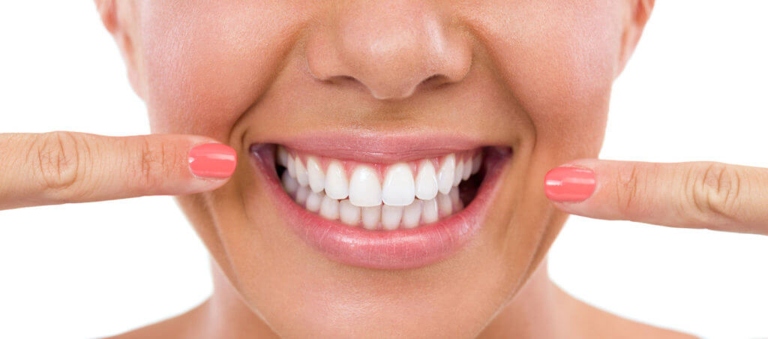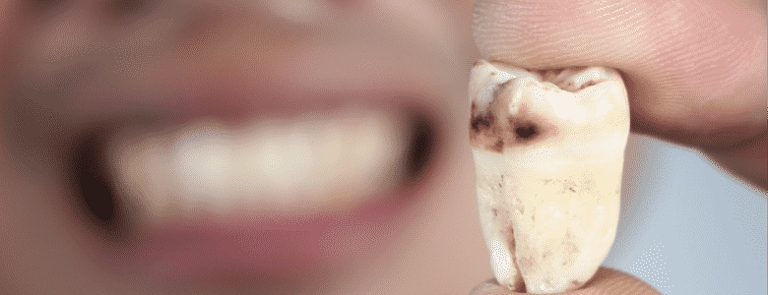The teenage years are a time of many changes – both physical and emotional. One of the physical changes that teens go through is the loss of their baby teeth and the growth of their adult teeth. So, how many teeth do teenagers have?
How Many Teeth Do Teenagers Have?
The average human has 32 teeth. However, teenagers have a few more teeth than the average adult. By the time they are 19, most teenagers have 32 permanent teeth and 4 wisdom teeth.
How Many Baby Teeth Do Children Have?
Most children have 20 baby teeth, which they start to lose around age 6. By the time they’re teenagers, they should have 32 permanent teeth.
At What Age Do Children Start Getting Permanent Teeth?
Most children start to get their permanent teeth around age 6. The first permanent teeth to come in are usually the first molars, followed by the canines, incisors, and premolars. Permanent teeth, also called adult teeth, are the second set of teeth that erupt in the mouth. By age 13, most teenagers have all of their permanent teeth.
How Many Teeth Do Adults Have?
In fact, about 1 in 4 people don’t have them at all. Most people’s wisdom teeth come in between the ages of 17 and 21. However, not everyone has wisdom teeth. While most adults have 32 teeth, teenagers have 28 teeth. This is because adults have four wisdom teeth, which are the last teeth to come in.
Wisdom Teeth In Teenagers
This means that the tooth is growing in at an angle and is pressing against the other teeth. They are called wisdom teeth because they come in at a time when people are considered to be more mature and wiser. This can cause pain, crowding, and even infection. While some people never have any problems with their wisdom teeth and they come in just fine, others may have problems with them. impacted wisdom teeth are the most common problem. Wisdom teeth are the third and final set of molars that most people get in their late teens or early twenties. If your teenager is having problems with their wisdom teeth, they may need to have them removed.
At What Age Do Teenagers Get Wisdom Teeth?
Wisdom teeth can be a source of pain for some people. Most teenagers have four wisdom teeth, which are the last teeth to come in. They may need to be removed if they are causing problems. Wisdom teeth usually come in between the ages of 17 and 21. Some people have fewer than four wisdom teeth, and some have none at all.
Can I Keep My Wisdom Teeth?
This includes the four wisdom teeth, which usually come in between the ages of 17 and 25. While some people have no problems with their wisdom teeth and they come in without any issues, others may experience pain, crowding, and other problems. The average teenager has 32 teeth.
Wisdom teeth removal is a common procedure, and most people recover quickly and without any complications. If your teenager is experiencing pain or other problems with their wisdom teeth, they may need to have them removed.

If your teenager is considering wisdom teeth removal, they should talk to their dentist or orthodontist to learn more about the risks and benefits. They can also ask about other options, such as keeping their wisdom teeth and monitoring them for any problems.
Is It Rare To Have All 4 Wisdom Teeth?
In fact, according to the American Association of Oral and Maxillofacial Surgeons, wisdom teeth are the most commonly impacted teeth in the United States. It is not uncommon for teenagers to have all four wisdom teeth.
While having all four wisdom teeth is not rare, it is important to note that not all teenagers will have them. In fact, some people never develop wisdom teeth at all.
Additionally, wisdom teeth may not develop if there isn’t enough space in the mouth for them to erupt. If your parents or grandparents never had wisdom teeth, there’s a good chance you won’t either. There are a variety of reasons why wisdom teeth may not develop, including genetics.
If wisdom teeth do develop, they typically erupt between the ages of 17 and 25. However, impacted wisdom teeth may not cause any problems until later in life.

While they may not need to be removed, impacted wisdom teeth can cause a variety of problems, including pain, infection, and damage to adjacent teeth. If you have wisdom teeth, it’s important to monitor them closely.
How Many Teeth Do You Really Need?
While some people have no problems with their wisdom teeth and they come in just fine, others may have wisdom teeth that are impacted, meaning they get stuck in the jaw and never fully erupt. Impacted wisdom teeth can cause a lot of pain and problems, so many people opt to have them removed. Wisdom teeth are the third and final set of molars that most people get in their late teens or early twenties.

Wisdom teeth removal is a fairly common procedure, and most people recover from it without any problems. Your dentist or oral surgeon will be able to tell you if this is the case. If your wisdom teeth are coming in and causing you pain, or if they are impacted, you may need to have them removed.
You should also take it easy and rest for the first day or two after the surgery. This includes things like not smoking or drinking alcohol for a few days before and after the procedure. If you are having your wisdom teeth removed, there are a few things you can do to help make the process go smoothly. First, be sure to follow all of your dentist or oral surgeon’s instructions.
Once the procedure is over, you’ll be able to enjoy your new, pain-free smile! If you take care of yourself and follow your dentist’s instructions, you should be able to recover from wisdom teeth removal without any problems.
Conditions That Affect The Number of Teeth
One condition is amelogenesis imperfecta, which is a disorder that affects the development of the enamel on the teeth. This can cause the teeth to be smaller, thinner, and more fragile than normal. This can cause the teeth to be missing, malformed, or abnormally spaced. Another condition that can affect the number of teeth is ectodermal dysplasia, which is a disorder that affects the development of the ectodermal tissues. There are a few conditions that can affect the number of teeth that a teenager has.
Brushing (at least) twice a day and flossing daily
It’s important to brush (at least) twice a day and floss daily in order to maintain healthy teeth and gums. This is especially important for teenagers, as they are more likely to develop cavities and other dental problems.
Brushing twice a day helps to remove plaque and bacteria from the teeth and gums, and flossing helps to remove food particles and plaque from in between the teeth. These activities help to prevent cavities, gum disease, and bad breath.

toothpaste with fluoride can also help to prevent cavities. It’s important to use a toothbrush with soft bristles, and to brush gently so as not to damage the teeth or gums.
Teens should see a dentist regularly for checkups and cleanings, and should report any problems with their teeth or gums to their dentist right away.
Tooth decay
Over time, this can lead to a hole in the tooth, known as a cavity. If the decay is not treated, it can eventually lead to the loss of the tooth. Tooth decay is the process by which a tooth is gradually broken down and destroyed. It is caused by the action of bacteria on the tooth, which produces acids that eat away at the tooth enamel.
It is estimated that around 60% of teenagers have at least one cavity. There are a number of factors that can increase the risk of tooth decay, including poor oral hygiene, a diet high in sugar, and not having enough fluoride in the water supply. Tooth decay is a very common problem, particularly in teenagers.

There are a number of ways to prevent tooth decay, including brushing and flossing regularly, eating a healthy diet, and using fluoride toothpaste. If you think you may have a cavity, it is important to see a dentist so that it can be treated before it gets worse.
Ectodermal dysplasia (a genetic disorder that can affect teeth)
Treatment typically involves the use of dental implants or dentures. Ectodermal dysplasia is a rare genetic disorder that can affect the development of teeth. The permanent teeth may also be affected, resulting in fewer than 20 teeth in the adult. In most cases, it results in the loss of all baby teeth by the time the child is five years old.
Gastrointestinal reflux
This can cause a number of different symptoms, including heartburn, chest pain, and trouble swallowing. While most cases of gastrointestinal reflux can be managed with lifestyle changes and medication, some may require surgery. The number of teeth that teenagers have can be affected by a number of different conditions, one of which is gastrointestinal reflux. This condition is characterized by the backward flow of stomach contents, including acid, into the esophagus. In severe cases, it can even lead to esophageal cancer.
How Many Teeth Does A 15-Year-Old Have?
A 15-year-old has 32 teeth. This includes the 4 wisdom teeth that most people have.
Why Do Some Teenagers Still Have Baby Teeth?
It’s not uncommon for teenagers to have a few baby teeth remaining, especially if they have wisdom teeth that haven’t come in yet. One reason is that they simply haven’t lost all of their baby teeth yet. There are a few reasons why some teenagers still have baby teeth. Whatever the reason, it’s not uncommon for teenagers to have a few baby teeth remaining. This can be due to a number of factors, including genetics, certain medical conditions, or even certain medications that were taken during development. Another reason is that some teenagers have teeth that never fully developed.
Frequently Asked Questions
How Many Teeth Do Teenagers Have?
1. How many teeth do teenagers have?
Most teenagers have 32 teeth. This includes the 4 wisdom teeth that usually come in during the teenage years.
2. How often should I brush my teeth?
You should brush your teeth at least twice a day, and floss once a day.
3. What are some good oral hygiene habits?
Some good oral hygiene habits include brushing your teeth regularly, flossing daily, and using mouthwash.
4. What are some common dental problems in teenagers?
Some common dental problems in teenagers include cavities, gum disease, and tooth decay.
5. How can I prevent dental problems?
You can prevent dental problems by brushing and flossing regularly, eating a balanced diet, and avoiding sugary and acidic foods and drinks.
Final thoughts
While the answer may seem obvious, it is important to remember that everyone is different. Just as adults can vary in the number of teeth they have, so too can teenagers. The average teenager has 32 teeth, but some may have more or less. Regardless of the number of teeth, it is important to take care of them. Regular brushing and flossing, as well as visits to the dentist, will help ensure that teeth stay healthy and strong.